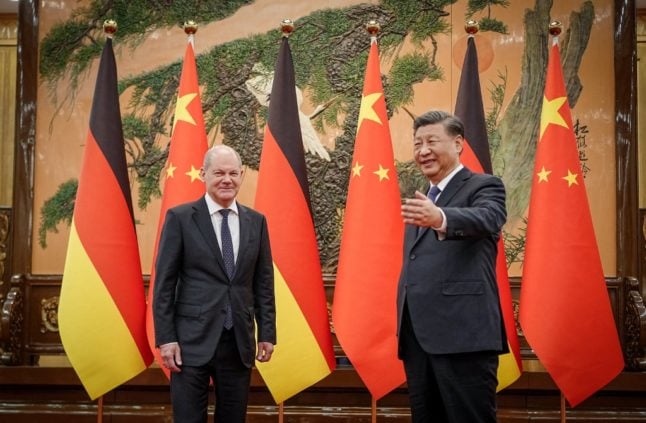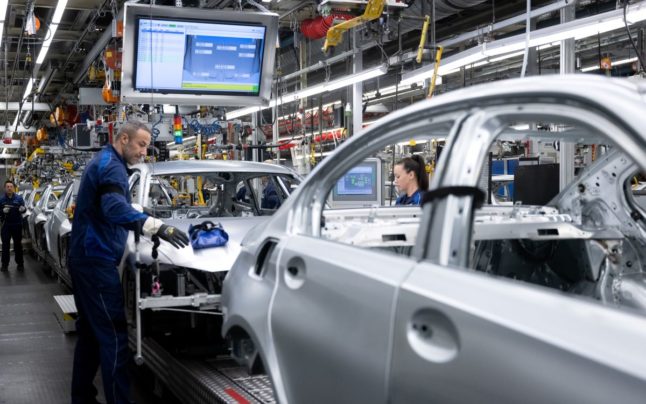Goods worth €297.9 billion were exchanged between the two countries last year, up 20 percent despite the continuing impact of the coronavirus pandemic, according to the federal statistics agency Destatis.
Germany’s trade deficit with China — the difference between the larger value of imports and smaller exports — hit €84.3 billion, the largest figure since the statistics body’s records began in 1950.
Imports from China rose to €191.1 billion in 2022, an increase of 33 percent on the previous year.
Meanwhile, the value of exports largely stagnated, increasing just three percent in 2022 to €106.8 billion.
The meagre figure saw China slip two places to fourth in the ranking of export destinations for German goods.
Fears have been growing in Germany about an over-reliance on China against the backdrop of tensions between the West and Beijing over its ties with Russia and human rights issues.
READ ALSO: Germany’s Scholz vows not to ignore ‘controversies’ on China visit
“Germany urgently needs a strategy for more diversification” away from China to secure supply of key raw materials and goods, particularly electronics, the German economic think tank IfW Kiel said in a report
published Wednesday.
The United States, Germany’s second most important trading partner overall, was the number one destination for items “made in Germany”, sucking up €156 billion worth of imports.
Overall, Germany’s trade surplus was at its lowest level since 2000 in 2022. The important indicator for the traditional export powerhouse fell to €79.7 billion on a year due to the rising cost of energy imports,
according to Destatis.



 Please whitelist us to continue reading.
Please whitelist us to continue reading.
Member comments